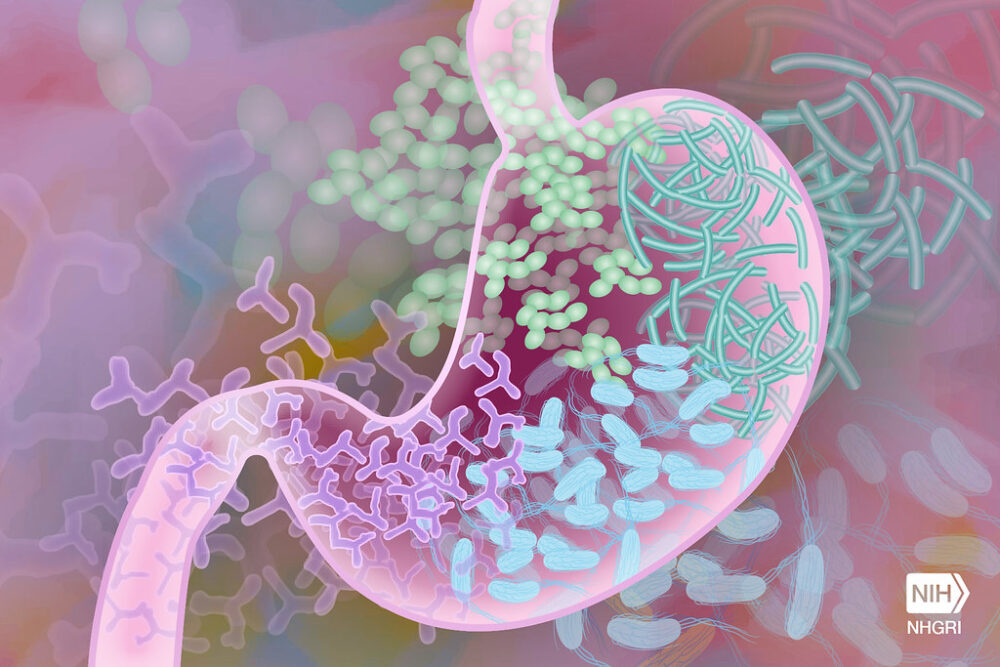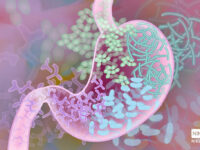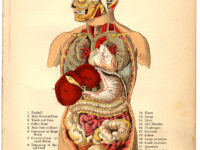Relationships are on display everywhere. They’re on your Instagram feed, in campaign ads for your favorite brand, and even in the Curry Student Center (bleh!). Existing in a world evidently oozing with love can be lonely at times, but whether you have a significant other or not, you, too, are in quite an intimate long-term relationship.
At this very minute, there are trillions of microbes teeming in every person’s stomach and intestines. Gut microbes are the bacteria and archaea that live in the human digestive tract and facilitate many of the body’s functions. These “bugs” work diligently to digest meals and augment immune defenses, and they have been for quite some time. In fact, human gut symbiosis is in the works before an individual is even born.
But what happens when this relationship turns toxic — when a relationship once characterized by mutual benefit becomes a source of constant agony? For sufferers of inflammatory bowel disease, irritable bowel syndrome, bacterial gastroenteritis, and other gastrointestinal conditions, persistent diarrhea, crippling abdominal pain, and fecal incontinence are markers of this relationship. These illnesses are often caused by gut dysbiosis. Dysbiosis — a change in microbiota composition that has harmful effects on the host — can happen for a number of reasons. In a journal article published in PubMed, Jason Hawrelak and Stephen Myers of the University of Tasmania state how “factors such as antibiotic use, psychological and physical stress, and certain dietary components [have all been found to] contribute to intestinal dysbiosis,” but there’s still much to be discovered.
OK, we all get it: gut health matters. Each day, we throw back a few probiotics or eat some yogurt hoping to nourish our guts. But what if your gut is too far gone? What if — like a crummy high-school boyfriend — you and your gut were just built to fall apart? For individuals with a Clostridium difficile infection (C. diff) or inflammatory bowel disease (e.g., Crohn’s disease and ulcerative colitis), gut relationships can’t be fixed with an “I’m sorry. I love you” text or even a kombucha.
With that said, fecal transplantation — which is still emerging and very unorthodox — could serve as a possible solution. During the procedure (also referred to as bacteriotherapy), a healthy donor stool is transplanted into a sick patient via colonoscopy. The goal is to reintroduce good bacteria, reduce the number of bad bacteria, and restore a healthy balance to the gut. Think of fecal transplantation as a “fresh start with a new boo” — or “a new poo.”
In his Ted Talk, “The Microbes Within Us,” Ed Yong, a science journalist and Pulitzer Prize winner, refers to fecal transplants as “ecosystem transplants” because of their unique capacity to reset the microbiome and purge the gut of harmful bacteria. The procedure has proved especially promising with respect to the treatment of C. diff. A randomized trial from the Netherlands and published in the New England Journal of Medicine concluded a cure rate of 90 percent for donor-feces infusion, compared to 60 percent for antibiotic therapy. Experimental research is still being done to determine if fecal transplants might provide similar relief to other patients with serious gastrointestinal issues — including Crohn’s disease and certain forms of colitis — but only time will tell.
Whether it be a new match on Tinder or facetime calls to a long-distance significant other, technological advancements have enabled new relationships to form and old ones to flourish. So, why not gut relationships? In time, sufferers of serious gastrointestinal illnesses will likely find relief as fecal transplantation technologies continue to develop.
Sources:
Altern Med Red (2004). PMID: 15253677
N Engl J Med (2013). DOI: 10.1056/NEJMoa1205037
Image Courtesy of Flickr






